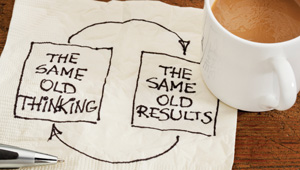
“Critical thinking, content knowledge, and practice experience are the three essential components of the development of expertise in clinical judgement.” Facione & Facione (1996).1
by Beth Ryerse, DipDH, RDH
Oh Canada! Volume 1 Issue 2
Every day, dental hygienists across the country are faced with unusual situations that have them questioning their actions or inactions. When faced with a difficult concern, it is helpful to have a process to work through to help guide us, step by step in making the best decision possible for all involved. The CDHA has just released a revised Dental Hygienists’ Code of Ethics2 and we are fortunate as a profession to have this clarity and just such a process. We have been trained to be critical thinkers and this is an important characteristic to possess.
Each health profession defines their own ethics in a written policy of responsible professional behavior.
A definition of ethics encompasses;
- A code of morals or standards of conduct
- The inquiry into the nature of morality or moral acts
- Values by which human beings live in relation to other human beings, nature, God, and themselves
Our new Code of Ethics2 is written in clear language and is easy to understand. One change that you will notice is the inclusion of “Integrity”. What a powerful word! Integrity relates to consistency of actions, values, methods, expectations, and outcomes. It includes the promotion of fairness and social justice with consideration for those clients more vulnerable. It conveys a sense of wholeness and strength, and doing what is right with honesty and truthfulness.(CDHA, 2012) Oprah Winfrey explains it another way. “Integrity means doing the right thing, whether or not anyone is watching.” I think this makes it even easier to comprehend.
The other ethical principles that guide us remain the same: Beneficence, Autonomy, Accountability and Confidentiality. Three concepts are included that address the challenges commonly encountered by dental hygienists. They are: Ethical Distress, Ethical Dilemmas and Ethical Violations.
Dental hygienists often have to act in situations with value laden issues. Meeting a client who holds very different values about culture, sexuality or religion may stir feelings in us that can be destructive to the professional relationship. Learning how to use a systematic process of critical thinking when making clinical judgements begins with clarification of the issues and insight into your own values as well as those of the client.
Knowing about your own thinking style is vital, not only for your own learning but also because your values impact the quality of relationships you establish. Discussing concepts such as barriers to thinking and recognizing biases help to develop clinical judgement abilities.
There are however, barriers to this type of self reflection.
Such as:
- Attitudes – these can interfere with our ability to empower clients to make their own decisions (e.g., “my way is better”).
- Habits – thinking that there is “only one right answer” or selecting only one option.
- Behaviours – responding defensively when challenged, resisting change, desiring to conform to expectations.
- Cognitive thinking – for example, stereotyping which interferes with our ability to treat a client as an individual.
Of course, clients bring their own set of values, including personal biases, to any interaction. For example, a male client may have an attitude toward people of the opposite gender that may interfere with his ability to accept advice about his health or suggested changes in lifestyle, from female professionals. Values are a set of personal beliefs and attitudes about truth, beauty, and the worth of any thought, object, or behaviour. They are action oriented and add meaning to one’s life. Values are almost never isolated but are interwoven with each other and specific life events. They influence each other and continually evolve as an individual matures in the ability to think critically, logically and morally.
Strongly held values become a part of a person’s self concept. It is important to be aware of our own values and be sensitive to situations where they may be in conflict with those of either your client or the health care system. As professionals, it is important that we recognize the values that are significant to us as individuals. We can then use our Code of Ethics to guide our decisions and behavior.
In the next article in this series, we will use this knowledge to look at the concept of critical thinking and the steps involved in working through ethical dilemmas. Watch for it in the winter issue of the magazine.
References
- Facione NC, Facione PA. Externalizing the critical thinking in knowledge development and clinical judgement. (1996). Nursing Outlook. 44(3):129–146.
- CDHA. Dental Hygienists Code of Ethics, revised June 2012. Ottawa, 2012.
Read this article offline later as a PDF compliments of CDHA
